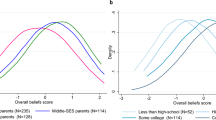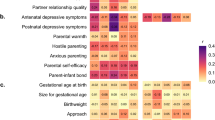Abstract
THE interesting letter from A. F. Dufton in NATURE of Oct. 1, p. 508, suggests a statistical method of study of the possible transmission to the offspring of mental characteristics acquired during their life by their parents, the possibilities and limitations of which seem to have been little explored or discussed. Mr. Dufton takes the age distribution of the fathers at the birth of 1000 eminent persons from the fourteenth edition of the “Encyclopædia Britannica”, and shows that these ages are distinctly higher than the ages of the fathers of 100,000 children less than one year of age at the Census of Scotland in 1921. At first sight the inference might be drawn from this fact that the superior ability of the children was due to the increased wisdom acquired by their parents during their experience of life ; but, before drawing this conclusion, there are one or two preliminary points to be considered.
This is a preview of subscription content, access via your institution
Access options
Subscribe to this journal
Receive 51 print issues and online access
$199.00 per year
only $3.90 per issue
Buy this article
- Purchase on SpringerLink
- Instant access to full article PDF
Prices may be subject to local taxes which are calculated during checkout
Similar content being viewed by others
Author information
Authors and Affiliations
Rights and permissions
About this article
Cite this article
FISHER, R. Inheritance of Acquired Characters. Nature 130, 579 (1932). https://doi.org/10.1038/130579a0
Issue date:
DOI: https://doi.org/10.1038/130579a0
This article is cited by
-
R. A. Fisher and Social Insects: The Fisher-Darwin Model of the Evolution of Eusociality
Biological Theory (2014)



